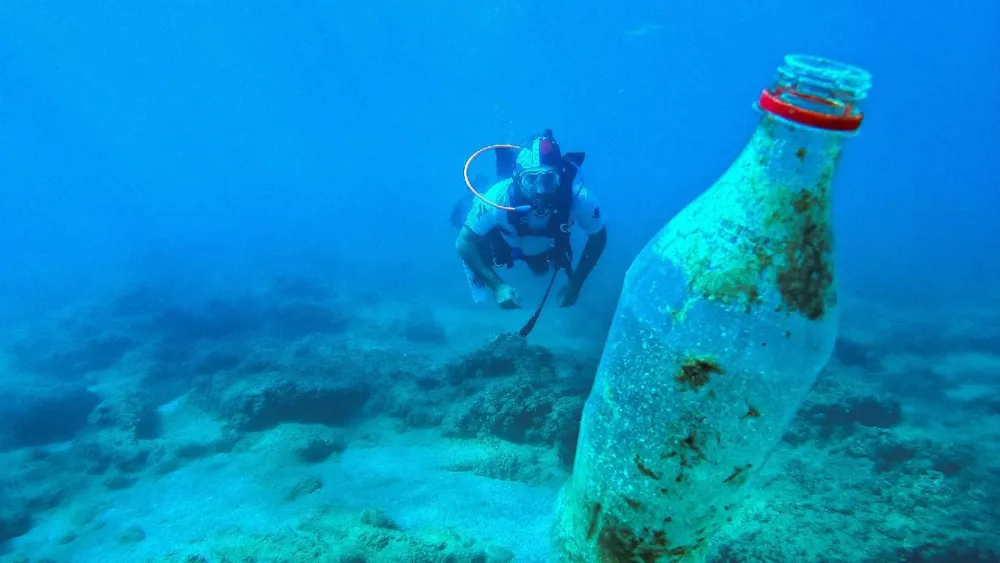Piraeus Launches Pollution Strategy to Clean Seabed

In a decisive move to address the escalating marine pollution crisis, Piraeus port in Greece has launched an ambitious underwater cleanup initiative aimed at reclaiming its waters and engaging local communities in environmental efforts.
As Europe's waters grapple with an alarming surge in plastic waste, a disturbing report from the European Environment Agency has highlighted the dire consequences of unchecked marine pollution, posing a significant threat not only to marine biodiversity but also to tourism and coastal economies.
Historically home to vibrant marine ecosystems, the seabed beneath Piraeus is now overwhelmed with plastic debris, ghost nets, and other waste. In response, teams of divers, along with volunteers, are embarking on a mission to restore their waters, utilizing state-of-the-art underwater drones and remote-controlled robots.
Katerina Topouzoglou, founder of the environmental organization All For Blue, acknowledged the multifaceted challenges posed by seabed cleanups, stating, 'We need expensive equipment, constant training, and sadly, most of what we find comes from land — bottles, bags, and trash from tourism.'
This cleanup is emblematic of a larger initiative supported by the European Union, which has set ambitious goals to achieve cleaner seas by 2030. Efforts like those in Piraeus are a testament to the EU's commitment to combat marine litter and safeguard vulnerable underwater ecosystems.
In addition to NGOs, local fishermen are integral to the cleanup strategy. Konstantinos Giannakopoulos, representing Enaleia, a nonprofit organization tackling plastic pollution and overfishing, shared that his team collaborates with coastal fishing communities to collect plastic waste during their daily fishing activities.
'Instead of throwing it back, they bring it ashore,' he explained. 'We then partner with recyclers to give this waste a second life — turning pollution into products and supporting the circular economy.'
This collaboration presents a dual benefit: cleaner seas alongside stronger, more resilient communities. The grassroots nature of this initiative embodies the principles of the EU's Green Deal, which strives to make Europe climate-neutral by 2050.
However, Topouzoglou emphasizes that meaningful change requires more than just policy initiatives. 'Environmental education and local involvement are key,' she asserted. 'When people understand the problem, they become part of the solution.'
As the cleanup progresses, the effort demonstrates how every ghost net recovered and plastic bottle removed contributes to a revitalization of Greece's marine environment. In Piraeus, a local cleanup initiative has rapidly transformed into an influential movement that holds the potential to rejuvenate the sea.
Read These Next

Living with Vitiligo: Strength Amidst the Spots
An animator shares her vitiligo journey in a documentary, highlighting challenges and the need for empathy towards those affected.

AI's Impact on Education and Homework Standards
The commentary discusses the implications of AI on education, focusing on a recent survey that suggests reducing homework to combat AI misuse.

The Promising Future of Natural Food Colors
This article discusses the significant shift from artificial food colors to natural alternatives, emphasizing the role of innovation in the food industry driven by consumer health consciousness. It highlights the efforts of companies like Fermentalg and Sensient in developing vibrant natural dyes and the challenges they face in matching synthetic colors.
